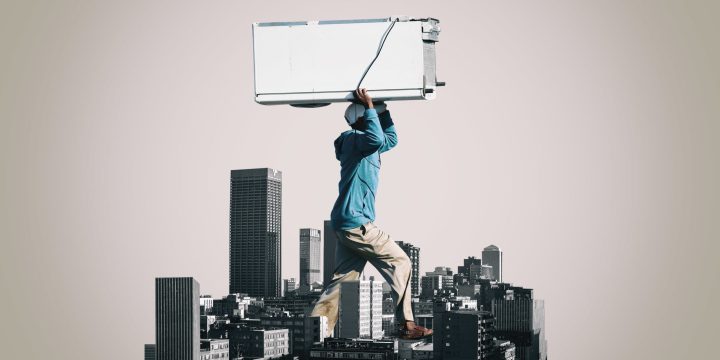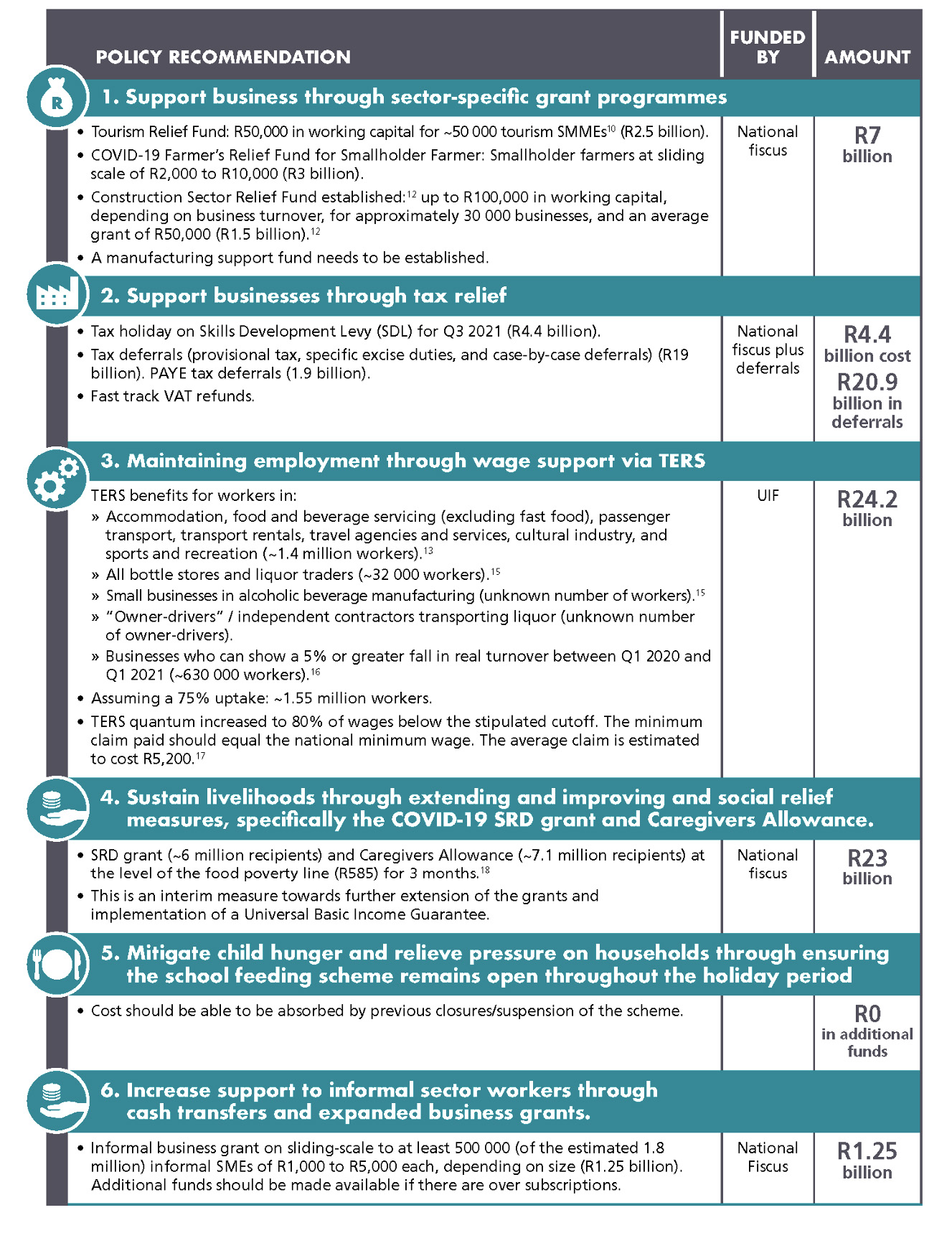OP-ED
Short-term R70bn emergency relief package to cushion effects of Covid-19 and the socioeconomic crisis (Part Two)

Even when the civil unrest abates, the underlying socioeconomic crises will remain, and will require even more urgent government action.
Dr Gilad Isaacs is the director of the Institute for Economic Justice, where Busi Sibeko and Zimbali Mncube are researchers.
South Africa’s socioeconomic crisis has been sharply highlighted as unrest breaks out during the peak of the third wave of Covid-19 infections and the extension of lockdown Level 4 restrictions. As highlighted in a previous op-ed in these pages and associated policy brief, this comes at a time when vulnerable groups have lost income, and most relief measures – initially extended to workers, households, and businesses – have expired, exacerbating the crisis. All of this is compounded by the slow pace of the vaccination programme.
In a new policy brief, the Institute for Economic Justice (IEJ) is calling on the government to roll out a short-term R70-billion emergency relief package over the next three months. The IEJ was the first to make the call for the original R500-billion relief package, presenting a fully costed proposal at the time.
The dire context
The IEJ’s most recent proposal was prepared in response to the need for government action to cushion the economic effects of Level 4 Covid-19 restrictions and prior to the outbreak of civil unrest that has swept South Africa in recent days. Although this package is not intended as a direct response to the civil unrest, the proposals retain their relevance. This is the case because Level 4 restrictions, although necessary, will continue to hurt workers, businesses, and livelihoods. Even when the civil unrest abates, the underlying socioeconomic crises will remain, and require even more urgent government action.
The South African context is dire. In 2020, StatsSA recorded that South Africa’s economy had contracted by 7%. Almost 1.4 million jobs have been shed, with the unemployment rate reaching a record high of 32.6% (expanded definition, 43.2%). South Africans continue to live under immense hardship, with approximately 10 million people and three million children living in a household affected by hunger in April/May 2021. Hunger will no doubt worsen in coming weeks as the impact of recent protests takes hold.
Previous rescue measures
Government responses have been woefully inadequate to meet the scale of the crisis. Of the original “R500-billion” Covid-19 relief package announced to support workers, businesses, and households through the pandemic, only R207-billion, or 41%, has been used. South African relief measures compare very poorly to other G20 countries, with South Africa spending only 4% of GDP on emergency relief, compared with the G20 average of 10%.
South Africa is (tied) in third-last place.
Most relief programmes have now ended. Without adequate and speedy support, the humanitarian and economic crisis is at risk of further deepening.
Short-term relief measures
Five considerations drive the IEJ’s R70-billion short-term emergency relief package:
- Speed, ease, and efficiency of implementation are critical;
- The triad of rescuing businesses, supporting wage payments, and sustaining livelihoods form the basis for the proposals;
- The relief provided must prioritise eligibility and access;
- Relief should prioritise cash transfers over more complex and limiting alternatives; and
- Spending now will pay off in the medium term, given the social and economic benefits (and the costs of failing to act).
The timing and details for the rolling out of the proposed relief measures would need to be adjusted to accommodate for the consequences of the recent unrest.
The government can afford to allocate R70-billion immediately for emergency relief. More than 40% of the relief package (R29.5-billion) is allocated from the current R39-billion UIF surplus. The balance (R40.5-billion) requires additional spending by the fiscus. The underspend on the original R500 billion relief package can cover the amount needed to rescue individuals and businesses negatively affected by the pandemic.
The fully costed relief package is comprised of 10 key policies:
- Support business through sector-specific grant programmes;
- Support businesses through tax relief;
- Maintaining employment through wage support via Ters;
- Sustain livelihoods through extending and improving social relief measures, specifically the Covid-19 SRD grant and Caregivers Allowance;
- Mitigate child hunger and relieve pressure in households through ensuring the school feeding scheme remains open throughout the school holiday period;
- Increase support to informal sector workers through cash transfers and expanded business grants;
- Offer greater support to workers who have lost employment through expanded UIF benefits;
- Reduce unpaid care work through ensuring the early childhood development sector is properly supported;
- Disburse and increase allocation towards the Presidential Employment Stimulus Programme; and
- Ramp up vaccinations to relieve pressure on the healthcare sector and save lives.
Measures to save lives through lockdowns will only be successful if the accompanying economic relief measures are in place. This R70-billion short-term package offers a real opportunity to arrest South Africa’s economic decline and the ongoing socioeconomic crisis.
This is the second in a two-part series. The first, No recovery without rescue: Relief measures in South Africa need to move at the scale and pace of the pandemic (Part One), focused on the vulnerabilities in the South African economy. DM
"Information pertaining to Covid-19, vaccines, how to control the spread of the virus and potential treatments is ever-changing. Under the South African Disaster Management Act Regulation 11(5)(c) it is prohibited to publish information through any medium with the intention to deceive people on government measures to address COVID-19. We are therefore disabling the comment section on this article in order to protect both the commenting member and ourselves from potential liability. Should you have additional information that you think we should know, please email [email protected]"









 Become an Insider
Become an Insider